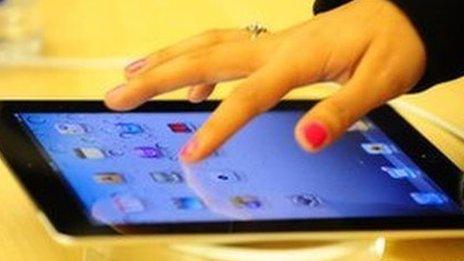Can a smartphone be a tool for learning?
- Published
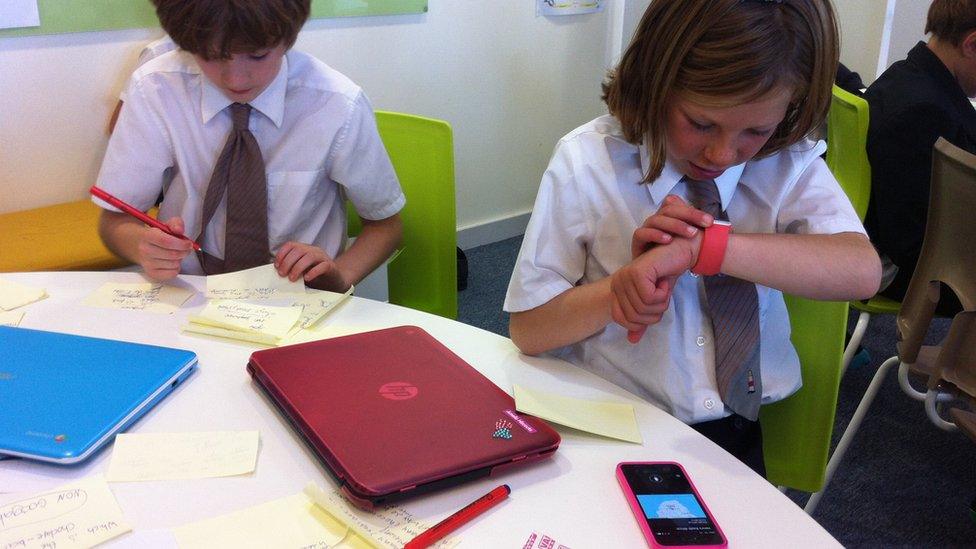
IPACA school in Dorset is experimenting with using smartphones and watches as tools for learning
In a classroom bright with autumn sunshine Amelie raises her wrist to repeat the teacher's question.
This is a class at IPACA school on the Isle of Portland.
Amelie, in year four, is speaking calmly into her smartwatch, using voice recognition software to search the web for the fact she needs.
She might just as easily have reached for the smartphone that she also uses during lessons.
Pupils discuss the impact of the ban four years ago
Her Dorset school has embraced a bring-your-own-device philosophy for pupils from year one to sixth form.
It puts them at the centre of a debate about smartphones in class, on which almost everyone has strong opinions.
First the head of Ofsted, Michael Wilshaw, said they should be banned from lessons.
Then the government said they would include smartphones in a review of measures to tackle poor behaviour in English schools.
'Not distracted'
Ministers pointed to research by the London School of Economics, external, which suggested a ban on phones could make a significant difference to the most disadvantaged children by reducing distraction from learning.
The academics asked schools in four cities in England about their mobile phone policy and combined it with data about pupil achievement.
The phone companies wouldn't release information from mobile records for reasons of confidentiality.
Richard Murphy, who carried out the research, says this meant they couldn't be sure what students were actually doing, but it was clear that having phones in class didn't have the same effect on all pupils.
"The fact we don't find anything for high achieving students implies that they're not being distracted by themselves, or being distracted by other pupils."
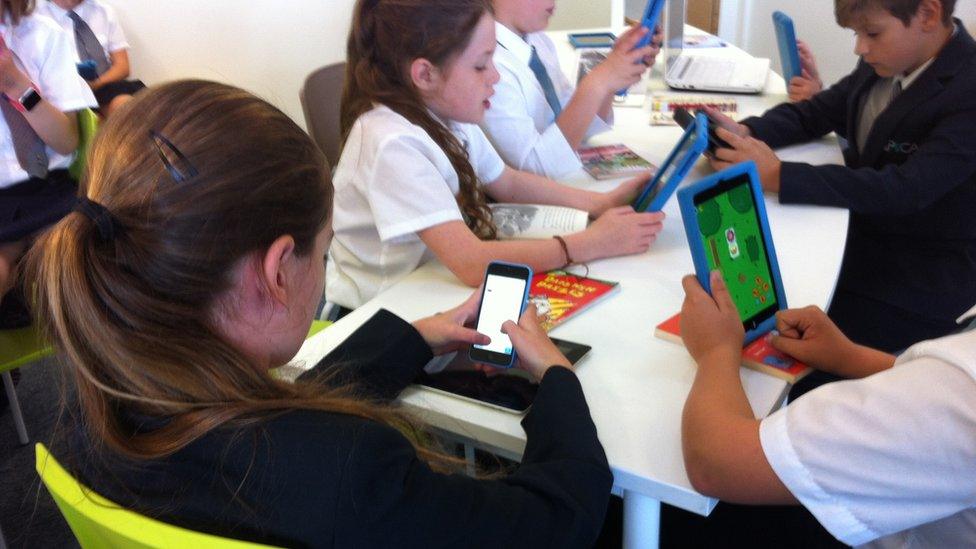
Students access the internet through a secure wi-fi connection with filters
And crucially he told me their research was focused on what happened in schools which were considering a ban, possibly because they'd experienced difficulties, and then implemented one.
So they didn't look at schools like IPACA which are using phones as a learning instrument.
"What we can say for sure is having phones in schools without any rules is bad for low achieving students. But what we can't say is that if mobile phones were being used in a proactive way this can't also be beneficial."
This means the largest recent academic study into the use of phones in schools gives only part of the picture.
Studying Syria
At IPACA, director of change and innovation Gary Spracklen argues it's about embracing 21st Century learning.
"With a smartphone we can cross-reference the textbooks - we can look at the Syrian crisis at the moment, the different population flows that are changing throughout Europe. We can't do that with a textbook."
The children at IPACA still read books, but the school library is online as part of a move to cloud-based learning.
A secure wi-fi system with filters operates across the school and devices are made available to everyone.
Any phone used in class has to be face up, on the table and unlocked so anyone can see what is open.
Vicky Short, whose son Finlay is at the school, says the reality is children are growing up with access to devices, and need to learn how to use them productively.
"I think it's important to understand as a parent that things are not done now as they may have been when we were at school. It's all about helping our children develop into modern society."
It is perhaps no surprise that IPACA is embracing devices like smartphones.
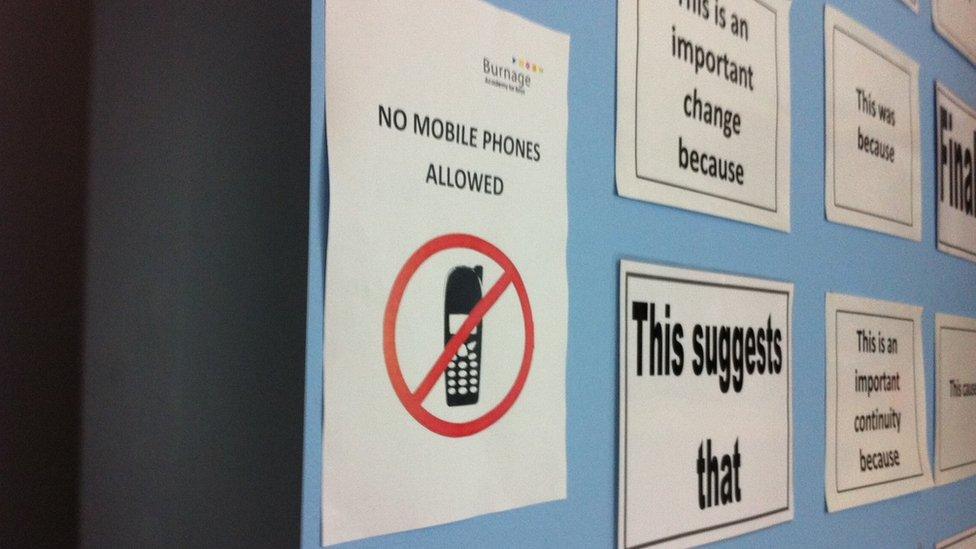
Burnage Academy for Boys banned phones entirely
The school's patron is Prof Stephen Heppell, who leads an expert group advising ministers in England on technology in education.
Their report, external, published early this year, said the ability to use digital technology to find information and share knowledge is "an essential contemporary skill set".
Although the report was welcomed by Education Secretary Nicky Morgan in January there has been no formal response to it since then.
When I ask Prof Heppell what he thinks of the idea of restricting phone use, he points out that education has a track record of banning things from ballpoint pens to calculators.
He says: "Today phones offer so much: data capture - children measuring light or sound levels to improve classrooms; [and] communications [with] slow-mo video for sports training [and] walking geometric shapes on to a playing field."
Less cyberbullying
Schools in England are having to find their own way through dealing with the possibilities and challenges of mobile phones.
Burnage Academy for Boys in Manchester introduced a complete ban on the use of phones four years ago.
The policy is clear: if a phone beeps, rings or is used in school it is confiscated and has to be picked up by a parent.
Head teacher Ian Fenn says it has had a significant effect on reducing disruption in class.
"We do not have as many thefts in school, as much cyberbullying. If their access to phones is limited during a chunk of the day, it lessens. I can think of no downsides whatsoever."
Technology is still used to aid learning, but through controlled access to more than 350 networked computers.
When I speak to one of the parents, Debbie Makki, she's clear she supports the ban.
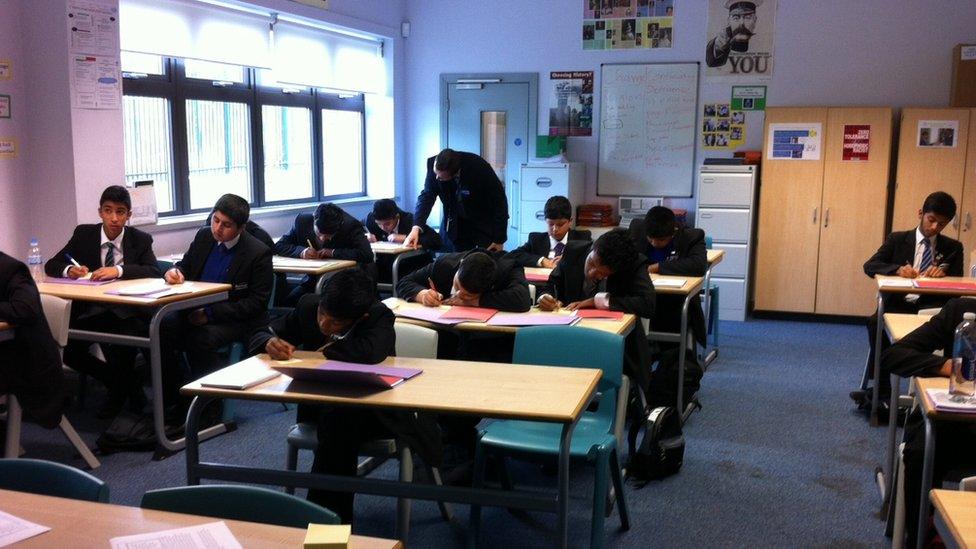
Parent Debbie Makki supports the ban on phones at Burnage
She has one son at Burnage while his older brother goes to a school with a more relaxed approach to phones.
"I've noticed the more he uses the phone in the daytime the more he uses it in the evening. Whereas my son who's here only uses it after he's done his homework."
This is an area where parents, and teachers, often have strong views shaped by dealing with teenagers glued to their phones.
The review now taking place will look at behavioural problems some schools have had because of smartphones.
But it's unlikely to end in an attempt to ban them across schools in England.
It would be impossible to enforce.
And there simply isn't enough evidence to rule out their use as a learning tool.
- Published15 September 2015
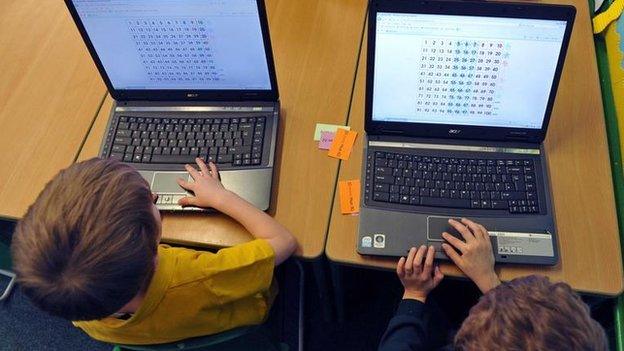
- Published3 August 2015
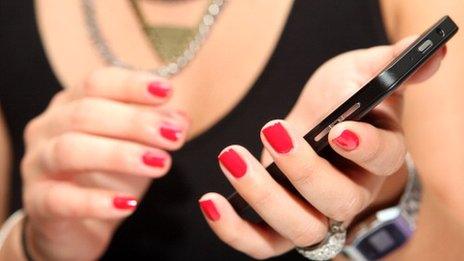
- Published6 August 2015
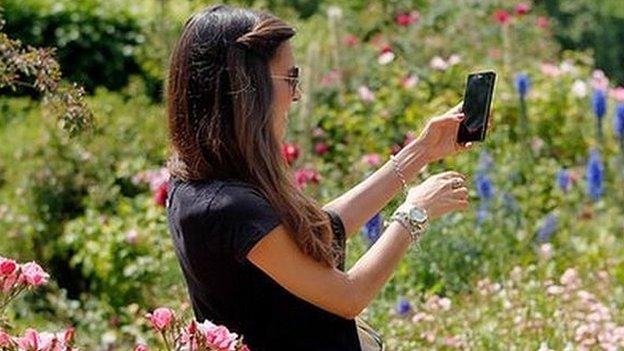
- Published17 May 2013
